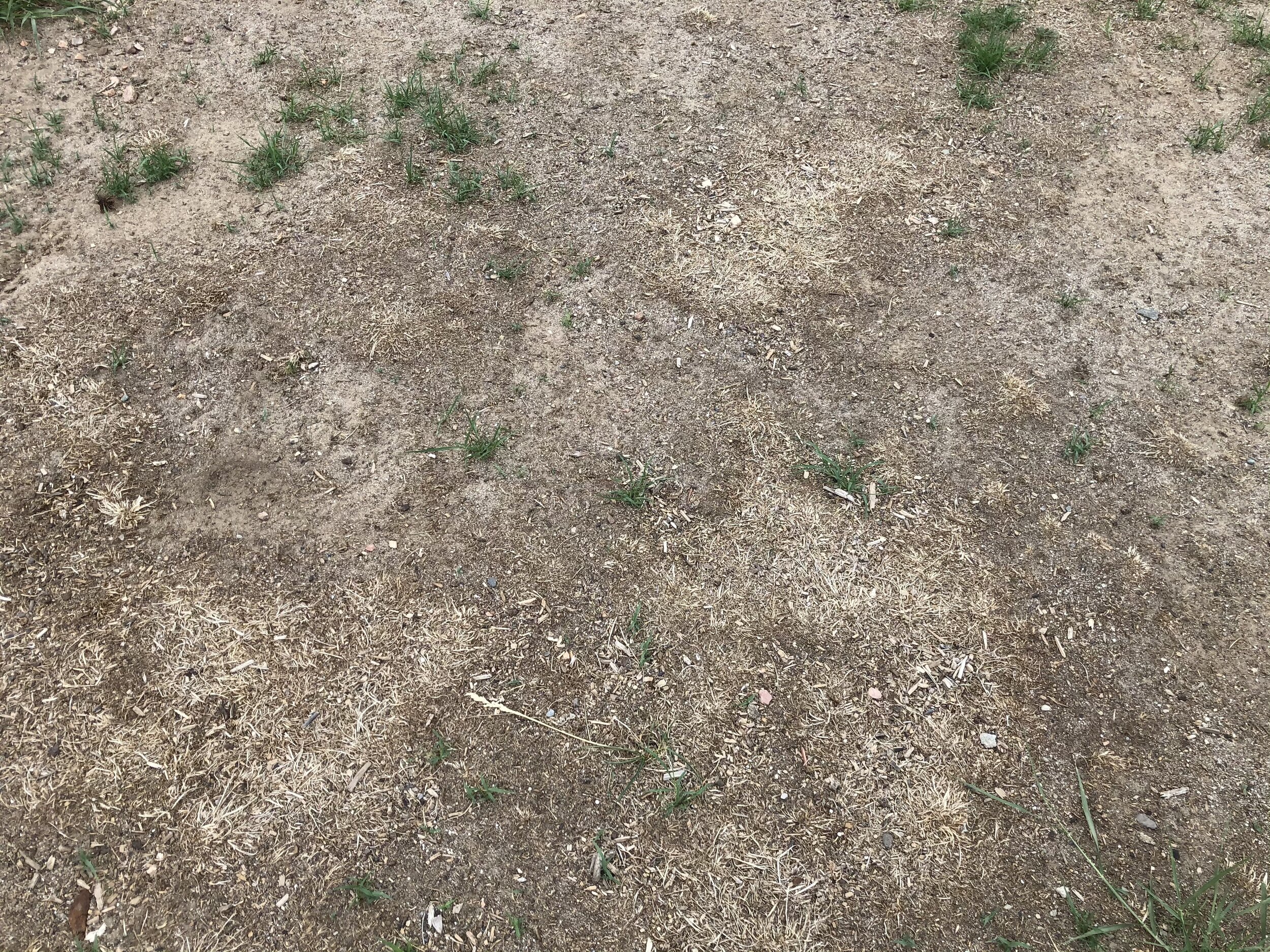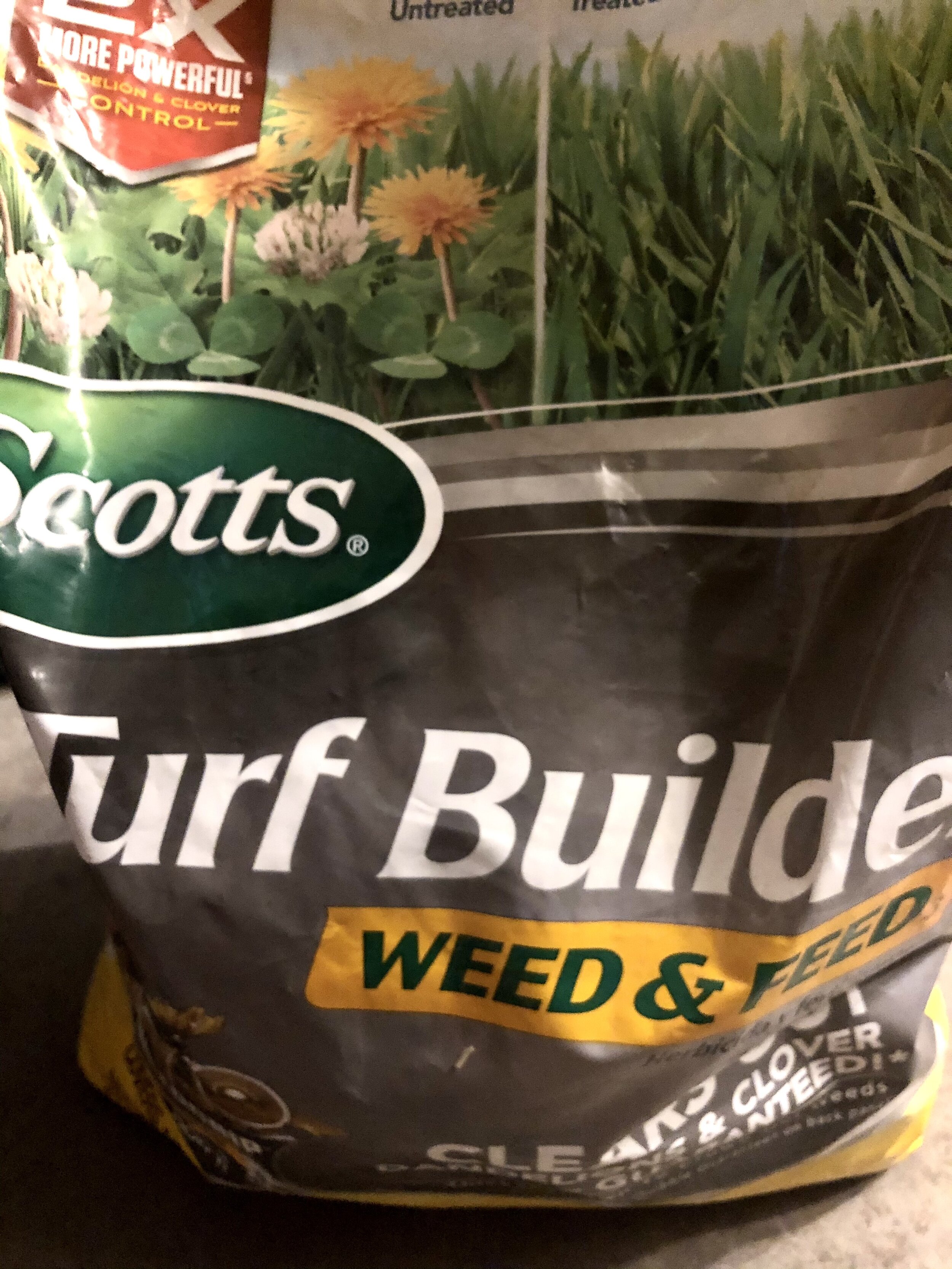The Waste Land (aka Our Backyard)
Here is no water but only rock
Rock and no water and the sandy road
Upon re-reading T.S. Eliot’s epic The Waste Land recently, it became quite obvious that he was describing, in 434 sometimes bewildering, sometimes perplexing, and occasionally bizarre lines of poetry, our backyard. In fact, some sections are so spot on that I kinda feel like he owes us a royalty. Or at least a cut of the proceeds.
The problem is, Eliot wrote his poem WAY before we procured our home. Way, as in 95 years before. Also, he is quite dead and has been since 1965. Still, his words fit out backyard to a T.
The road winding above among the mountains
Which are mountains of rock without water
Ok, numero dos: Not everything is a perfect match. I mean, our backyard isn’t just terrible in April. Also, as far as we know, none of our neighbors are named Madame Sosostris or have a side gig as a clairvoyante. And I’ve never noticed any “bats with baby faces in the violet light.” (Yes, Eliot may well have been smoking something at the time.)
Still, some of it is pretty darn close. It’s like he stood back there, took in the sheer bleh of it all, and penned this monster. Take this line for instance, “I think we are in rats’ alley, when the dead men lost their bones.” Wow! The similarities are eerie!
The crazy thing is that our backyard wasn’t always a rats’ alley. And I’m almost positive it wasn’t a dead zone for zombies. Until we moved in. That’s when it all started.
If there were water we should stop and drink
Amongst the rock one cannot stop or think
Sweat is dry and feet are in the sand
If there were only water amongst the rock
We bought this house during what is affectionately referred to as the FUBAR period of Colorado real estate. FUBAR, for the uninitiated, is an acronym that stands for Fully Unreliable Bulletins About Ridiculousness. Bulletins as in listings. The ridiculousness in question was the housing market. Homes were put up for sale and purchased in a matter of hours, routinely going for well above asking price.
In our case, we had already seen, liked, and, unsuccessfully put bids on three or four houses. In our naivete, we had, in every cases, paused to give thought to the purchase, considered what we could afford, and made offers we thought were fair. Yeah, pretty hilarious! So when this particular house came along, while I hadn’t seen it and it was in a quasi-ghetto area and was more than likely overpriced, we immediately made an offer that would put hair on the sellers’ respective chests. And boom! We magically became homeowners.
The yards that came with this house - both front and back - had been, in an effort to attract buyers, coached and cultivated to pristine condition. And the ploy obviously worked. The lawns were the greenest of green. The grass was thick and growing. The trees and bushes were equal parts vibrant and verdant. Birds and other small animals frolicked about as if it was their fairyland playground. The yards - both front and back - were alive with the sound of music.
We quickly took care of that. Not by choice. By dog. Or rather dogs, plural.
If there were the sound of water only
Not the cicada
In our first year of residence, we owned one dog and while she was not in any way kind to the backyard, she did not scorch and burn it. Neither did she shock and awe it, or in any other way declare war, causing it to shrivel and revert to Sahara Desert status.
In our second year, we adopted a majorly fat dog. Actually, we fostered him, helped him slim down, win the Biggest Loser: Dog Edition, and then, having invested so much time, activity, and TLC, we adopted him.
Two dogs, one lawn. The grass was outnumbered, but it persevered.
At the violet hour, when the eyes and back
Turn upward from the desk, when the human engine waits
Like a taxi throbbing waiting
Around year three, dog three showed up. And that was the beginning of the end. The yard gave up the ghost. We then, being eternal optimists, spent the following summer reseeding and reviving and re-envisioning our field of dreams. After approximately 1.7 bizillion gallons of water and many pounds of fertilizer, the grass was gloriously resurrected. For a couple of months. Then... the Dust Bowl descended.
This year, rather than spend more money and time begging the grass to grow and calling the yard out from the grave (it definitely doesn’t respond to the name “Lazarus”), we chose a different and decidedly more back-strain intensive path: a patio extension.
He who was living is now dead
We who were living are now dying
With a little patience
Here’s the thing about pouring concrete: Ugh! If you like hauling 80 pound sacks from Lowe’s to your backyard, getting gray (probably toxic) dust all over your skin and in every possible orifice, then you would love this. Otherwise, not so much.
There is the empty chapel, only the wind’s home
It has no windows, and the door swings,
Dry bones can harm no one
In our case, though the extension was modest - just 5 x 10 feet - it required 28 of those lovely 80 pounders. After the framing and prepping and pounding and renting of equipment, we spent about 3 hours madly dumping concrete, pushing concrete around, and smoothing concrete. When the project was completed, after a week or so of trying to remove the concrete leftovers from our bodies, we relaxed and began to enjoy our new patio: a larger space for our table, an oasis where we can sit and leisurely gaze out upon the waste land that is our backyard.
In the faint moonlight, the grass is singing
Yeah, you’re right. Eliot’s poem doesn’t really match our backyard. We have zero grass. And even when we did, it definitely wasn’t singing in the moonlight. So - never mind.


